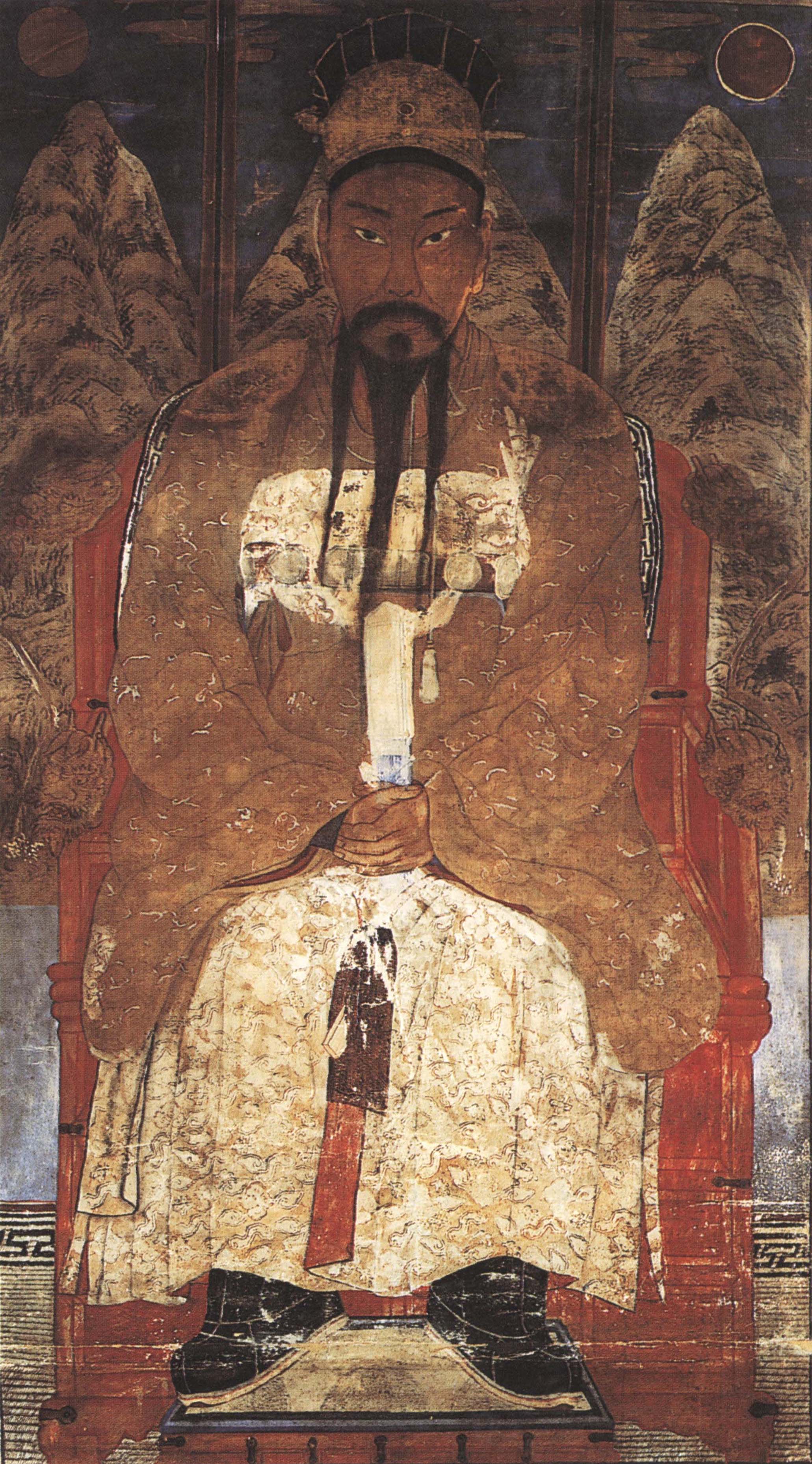|
Seonjong Of Goryeo
Seonjong of Goryeo (9 October 1049 – 17 June 1094) (r. 1083–1094) was the 13th king of Goryeo. He was the second son of Empress Inye and born in September, 1049. He was sealed as marquis of Gukwon (國原侯) in March, 1056. Harmony of Confucism and Buddhism made his political statue very stable. Also he propelled broad-range trade among Song, Jurchens, Liao dynasty of Khitans, and Japan. During his period, Buddhism in Korea grew a lot. His brother Uicheon brought 1,000 scriptures from Song and bought 4,000 scriptures from Liao, Song, and Japan. Furthermore, Seonjong founded many pagodas for Buddhist temples and presented clothing for soldiers guarding the borders. Even when bedridden due to an illness in 1092, he calmly accepted his nearing death on lieu of Buddhist virtues.삼국유사 Family *Father: Munjong of Goryeo (고려 문종) **Grandfather: Hyeonjong of Goryeo (고려 현종) **Grandmother: Queen Wonhye (원혜왕후) *Mother: Queen Inye (인예왕후) **Grandfat ... [...More Info...] [...Related Items...] OR: [Wikipedia] [Google] [Baidu] |
List Of Monarchs Of Korea
This is a list of monarchs of Korea, arranged by dynasty. Names are romanized according to the South Korean Revised Romanization of Korean. McCune–Reischauer romanizations may be found at the articles about the individual monarchs. Gojoseon Gojoseon (2333 BC – 108 BC) was the first Korean kingdom. According to legend, it was founded by Dangun in 2333 BC. Bronze Age archaeological evidence of Gojoseon culture is found in northern Korea and Liaoning. By the 9th to 4th century BC, various historical and archaeological evidence shows Gojoseon was a flourishing state and a self-declared kingdom. Both Dangun and Gija are believed to be mythological figures, but recent findings suggest and theorize that since Gojoseon was a kingdom with artifacts dating back to the 4th millennium BC, Dangun and Gija may have been royal or imperial titles used for the monarchs of Gojoseon, hence the use of Dangun for 1900 years. * :"An extreme manifestation of nationalism and the family cult was ... [...More Info...] [...Related Items...] OR: [Wikipedia] [Google] [Baidu] |
